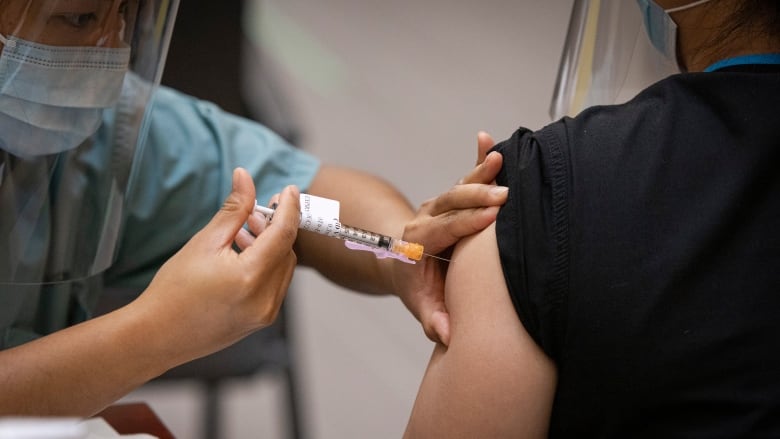COVID-19 vaccination rollout presented initial hurdles but rate 'not that bad,' says doctor
Province was wise to hold onto 2nd doses for pilot project as federal gov't recommended, says Dr. Suresh Tikoo

While the vaccination rate appeared to move slowly off the start in Saskatchewan, there were several contributing factors at play, says one person with expertise in vaccine distribution.
Suresh Tikoo, the University of Saskatchewan's School of Public Health director of Vaccinology and Immunotherapeutics, said despite the initial hurdles, the vaccination rate in the province was "not that bad."
"This is the biggest vaccination program ever held by any country, any province anywhere," Tikoo said.
"There are logistic hurdles in Saskatchewan. For example, much of the population lives in small cities and a remote area, so those logistic hurdles have to be removed."
He said the program also started around the holiday season, when more people who administer or would receive the vaccine may not have been available.
Of course, the well-documented storage requirements of the Pfizer-BioNTech vaccine also created a challenge he said.
Tikoo noted the federal government advised the province to hold some of the first Pfizer-BioNTech vaccines advice the province acted on and took criticism for for redistribution at a later date.
As of Saturday's update, 6,964 doses of COVID-19 vaccine were administered. The province broke down Saturday's totals as follows:
- 2,069 Pfizer-BioNTech vaccine doses in the Regina pilot program in Regina.
- 788 second doses of the Pfizer-BioNTech vaccine pilot in Regina.
- 2,681 Pfizer-BioNTech vaccine doses in Saskatoon.
- 482 Moderna vaccine doses in the far northwest.
- 65 Moderna vaccine doses in the far north central.
- 493 Moderna vaccine doses in the far northeast.
'We can use the doses that land in Saskatchewan'
Health Minister Paul Merriman was called on to address the province's vaccination rollout multiple times last week and clarified his messaging on Friday.
"I wasn't trying to blame the federal government, I was just simply reiterating what the federal government told us to do, which was hold back the second dose [for the pilot project]," he said.
"Up until this week, they were still telling us the same thing. Now that we feel more comfortable with the process and what we're doing with the vaccines, we feel now that we can use the doses that land in Saskatchewan."
He said when the first round of Pfizer-BioNTech vaccines arrived, there was no concrete confirmation as to when the next doses would show up.

Merriman said the province has now distributed a second round of vaccines to staff in Regina, a milestone he said it was great to be able to mark.
Tikoo commended the province for acting on the federal government's advice and holding back those second doses for the pilot project.
"Think about it: if all those doses were initially used and then you get half the doses to vaccinate them the second time, the second vaccination will go from 21 days to 28 days or 35 days," he said.
"That will affect the introduction of the immune response."
Now that the requirement is gone, he said he expected the provincial vaccination program to become more streamlined.
When asked if the province's goal of vaccinating the population by the fall, Tikoo said it's ultimately up to the manufacturers of both vaccines to ensure the supply chain remains uninterrupted to allow the province to meet its vaccination targets.












_(720p).jpg)


 OFFICIAL HD MUSIC VIDEO.jpg)
.jpg)



























































































